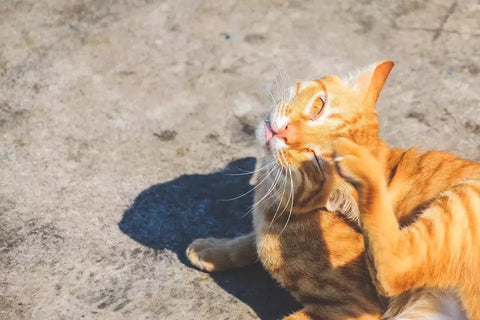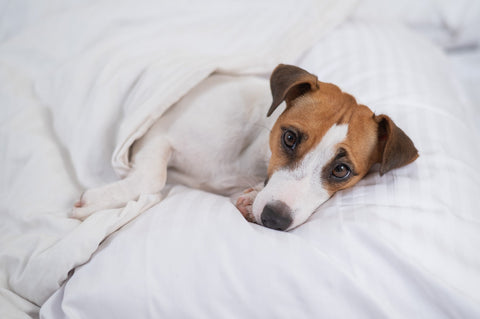Just when you thought taking care of your pregnant female cat is over (finally!) because she just had a successful delivery, the responsibility of being a pet parent is just beginning. And since mother cat is still weak and fragile after giving birth, you will have to step in to give her and her litter proper postnatal care. So, what is the best way to care for a cat that just gave birth? And how can you help a mother cat care for her kittens without getting in the way?
Give Them Privacy
In this article, we’ll talk about how to properly take care of your female cat after giving birth and how to help tend to her litter’s needs.
"Make sure you keep them away from any possible triggers - stray animals, other pets at home, house guests and the hustle & bustle in your home."
This is an essential step in caring for newborn kittens and mother cats. After a successful delivery, both mother cat and her litter will be easily stressed out. When a cat just had kittens she will need rest and relaxation. Make sure you keep them away from any possible triggers - stray animals, other pets, house guests, and the hustle & bustle in your home. You can decide where to put the whelping bed for cat after birth care but make sure the area is quiet and clean.
Cats love privacy and giving them just that will provide your cat and her litter the suitable environment to recover and rest well to face the many days ahead. While this may seem like an unexpected part of cat after birth care, it is an important one so that a mother cat can decompress with her kittens. So, check in frequently, but do not interfere with your cat after giving birth.
Provide Quality Food
You might be wondering what to feed a cat after birth. Provide mother cat with good food recommended by your veterinarian so she'll have the vitamins and nutrients she needs to be able to gain strength and produce enough milk for her young.
The kittens will usually feed every 2 hours after birth. You will know when they have to nurse because they will begin crying and moving around. Help the kittens take turns while feeding, allowing the smallest ones to go first.
In cases like mother cat rejects her young, suffers complications after giving birth (we hope this does not happen), or doesn't produce enough milk to provide all her kittens, you can consult your veterinarian on what special formula or milk replacer to use, but make sure you have some on hand in case of emergencies. Giving milk replacer to her litter will require bottle feeding. Make sure the bottle/s you use are sterilized before and after using to help prevent causing any gastrointestinal complications among the kittens.

Keep Them Clean
In taking care of newborn kittens and their mother, it is always important to maintain good hygiene. Always keep the newborn kittens dry, warm, and away from all soiled materials inside the whelping box. Use a Pet Parents® Pawtect® Pads that you can change out regularly if they get soiled and wet.
This will keep everybody I the whelping box to stay away from taking a bath in their own pee and poop. These pads are made with WickQuick® anti-tracking feature that wicks, absorbs & holds in more liquid per square inch compared to other pads in the market, locking any moisture or wetness in the pad so mess and strong urine smell can't be tracked all over your home.
Having your mother cat wear Pet Parents® Cat Diapers can also be a great option so she can pee and poop, without creating any mess and without having to take her eyes off of her young. Pet Parents® cat diapers will help prevent her from be soiling her young and the whelping box bedding. These diapers for cats are very absorbent, have sewn-in pads that can keep in both fecal & urinary messes, adjustable, and made with a hook & loop system that support many cat body types while providing a leak-proof, comfy fit.
Keeping your mother cat and her litter, dry, warm, and clean is a great help to prevent them from acquiring and developing infections and diseases. You might be wondering, “Can I give my cat a bath after birth?” The answer is yes, but you should wait at least two or three days. This will allow your cat time for her cervix to close after giving birth. In the meantime, you can use a damp washcloth to help clean her off.
Monitor. Monitor. Monitor.
Just because you think mother cat and her litter are already doing great, adjusting & recovering well, doesn't mean you shouldn't keep an eye on them anymore. Make it a habit to monitor each kitten's growth or look for any signs of abnormalities and illnesses, like difficulty breathing, troubles with peeing & pooping, weakness. Monitoring your furbabies is a crucial part of cat after birth care. According to International Cat Care, newborn kittens are vulnerable to illnesses because their mechanisms which regulate temperature control are not yet fully developed.
Also look out for any behavioral changes on mother cat. Is she feeling weak? Is she becoming grumpy? Does she look restless and anxious? Did she suddenly reject her litter? According to The Spruce Pets, there are a few severe conditions to keep an eye out for in your mother cat:
- Mastitis: occurs when the mother cat's milk production gets blocked by inflamed mammary glands
- Hypocalcemia, also known as "milk fever": happens as a result from a lack of calcium during pregnancy and while nursing
- Uterine Metritis: a severe infection of the uterus that comes with a foul-smelling discharge and fever
If you notice these sudden changes in your mother cat, talk to your vet as soon as possible.
Make sure everyone is feeling well and gaining a healthy weight. You should also schedule a regular visit to your vet clinic. Check with your vet about the deworming and vaccination schedules of both mother cat and her kittens.
Socialize kittens early.
You can handle the kittens at any time. Handling them will help them grow up to be tamed and well-socialized.
If your cat just had kittens, you can handle the kittens at any time, particularly when you are weighing them every day. Handling them carefully and gently will help them grow up to be tamed and well-socialized with people. But before handling the kittens, make sure your hands are clean. Wash your hands first and pat dry with a towel or sanitize.
Provide nutrition supplements.
Breastfeeding a litter of kittens takes a lot of energy and calories from a mother cat. Be sure you’re providing bringing your mother cat nutritious food. Also. provide your cat with only the best, high-quality cat food there is to help her recover faster. You can ask your vet about providing supplements for your cat. Your vet will recommend the right supplement your mother cat needs that will strengthen her immune system and boost her overall health.
Additionally, if the kittens are on milk replacer, choose and purchase the ones that are trusted and contains all or mostly the nutrients the litter will need to grow up happier, healthier.
Post-natal cat care is very important. This helps your mother cat recover faster and her kittens grow well, for them to live a happy and healthy life, with you. Now that you know some ways how to take care of a cat after giving birth and know what to do after your cat gives birth, you can relax and enjoy helping your mother cat raise her kittens.









